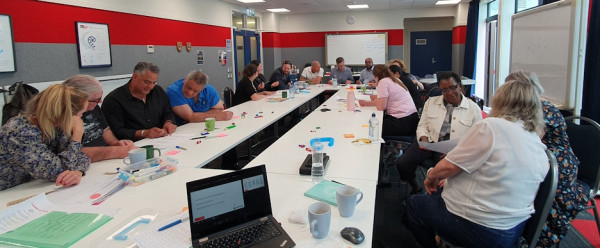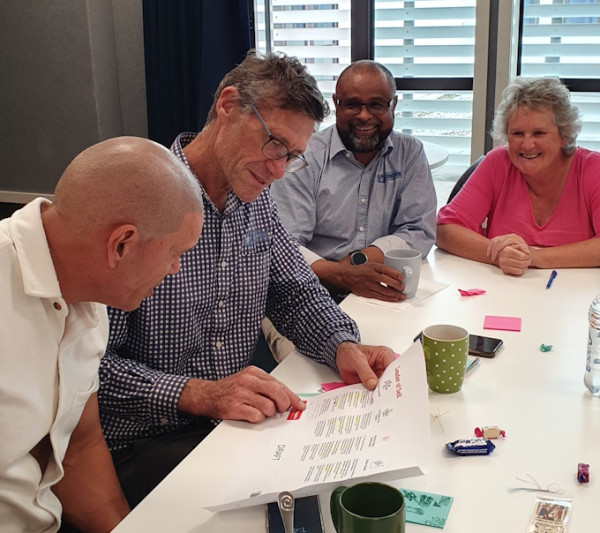18 February 2025
Education Tutors benefit from professional development
Education is key to people accessing employment and maintaining a life without crime on release. Research shows that access to higher education, not only improves employment options upon release, but supports better engagement reintegration plans, encourages active citizenship and improves general wellbeing.
“People must have a functional level of literacy and numeracy in order to participate fully in society,” says Lower North Practice Manager Education & Training Amber-Jay Velez.

During 2024, 20 Education Tutors from prisons in the lower North Island benefited from new professional development sessions.
Education tutors assess educational need, develop learning plans and support people in prison to succeed through engagement with a range of educational programmes.
“The ongoing development of education tutors is a priority for Practice Managers, Education & Training,” says Amber-Jay.
During 2024, 20 education tutors from prisons in the lower North Island benefited from new professional development sessions led by Amber-Jay. Throughout the year the tutors have worked hard on a variety of topics to enhance skills specific to the role.
“As a result of the professional development we are seeing better quality conversations and more structured planning about education, between education tutors and prison learners,” says Amber-Jay.
Part of the professional development has included reflective practice and communication skills to improve collaboration with frontline colleagues.
“It is important to involve the expertise and skills of our education tutors in a person’s reintegration plan,” says Amber-Jay. “We know that improved education in prison plays an important part in our organisational goals of people leaving prison with brighter prospects.”
What the team achieved:
- Practiced and nurtured whanaungatanga amidst the education tutors as a normal way of working to share experiences, expertise, skills and knowledge at a national and regional level
- Built and promoted a culture of rangatiratanga (leadership) for education where leadership is seen, heard and practised
- Acknowledged and celebrated the manaakitanga education tutors provide to people in prison
- Nurtured our wairua by filling our kete with knowledge that supports and improves the role of the education tutor
- Understanding the role of kaitiakitanga and how education tutors as individuals and as a professional body are integral in helping to shape the pathways for people in prison.
Feedback
“These (hui) have been invaluable, putting names to faces especially around IOMs, building relationships to gain knowledge and reflecting on my practice, especially helping new tutors at my site.” - Education Tutor Rimutaka Prison
“All the hui are great, we are able to share ideas, we are able to come together as a team and help each other build confidence, knowledge and also helps with communication. Building strengths. Getting to know each other is the key to a productive and successful team.” - Education tutor, Whanganui Prison
Manager, Capability Pathways & Practice Coralea says our education tutors are doing important work in prisons, so it’s great to have robust professional development opportunities to maintain quality practice across sites.

Education Tutors assess educational need, develop learning plans and support people in prison to succeed through engagement with a range of educational programmes.

Ready to make a move?
Start your journey - check out the a list of our current opportunities then apply online today!